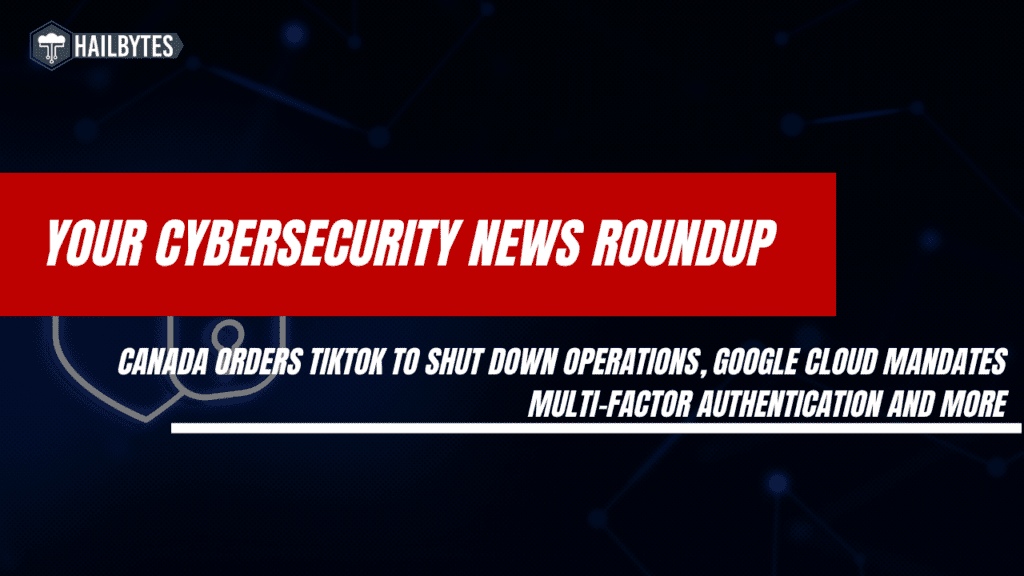Canada Orders TikTok to Shut Down Operations, Google Cloud Mandates Multi-Factor Authentication: Your Cybersecurity Roundup
Canada Orders TikTok to Shut Down Operations
The Canadian government has ordered the dissolution of TikTok Technology Canada, citing national security concerns. This decision comes after a multi-step review process involving Canada’s security and intelligence community.
While the specific security risks posed by TikTok have not been publicly disclosed, the move aligns with growing global concerns about the potential misuse of user data by Chinese companies. The US government has also expressed similar concerns and has taken steps to restrict the use of TikTok on government devices.
Despite the shutdown, Canadian users will still be able to access and use the TikTok platform. The Canadian government has emphasized that the decision targets the company’s operations in Canada and does not restrict individual user access. TikTok has responded to the decision, stating that it will challenge the order in court. The company maintains that it is committed to protecting user privacy and security.
Deploy Gophish
Cybercriminals Exploit Copyright Infringement Claims to Deliver Malware
A sophisticated phishing campaign is targeting businesses worldwide, leveraging copyright infringement claims to trick victims into downloading malicious malware. The campaign, dubbed “CopyR(ight)hadamantys” by cybersecurity firm Check Point, leverages social engineering tactics to lure unsuspecting users into clicking on malicious links.
The attackers send personalized emails claiming copyright infringement, often impersonating well-known companies. These emails typically include a link to a password-protected archive containing a decoy document and a malicious DLL file. Once executed, the malicious DLL deploys the Rhadamanthys information stealer, a powerful tool capable of stealing sensitive information, including login credentials, cryptocurrency wallet passphrases, and other valuable data.
The Rhadamanthys stealer has been linked to various cybercrime groups and has been used in various attacks, including those targeting government agencies and critical infrastructure. The malware’s advanced capabilities and ability to evade detection make it a significant threat to organizations of all sizes.
Google Cloud Mandates Multi-Factor Authentication for Enhanced Security
Google Cloud is set to enhance its security posture by mandating multi-factor authentication (MFA) for all accounts by the end of 2025. This decision, aimed at protecting sensitive data and mitigating cyber threats, will impact a wide range of users, including administrators, developers, and IT professionals.
The phased rollout will begin with gentle reminders for users who haven’t yet enabled MFA. Subsequently, all new and existing users will be required to activate MFA across various Google Cloud platforms. Finally, by the end of 2025, MFA will become mandatory for all users, including those who access Google Cloud through federated identity providers.
To enable MFA on your Google Cloud account, visit “security.google.com” and follow the instructions under “2-Step Verification.”
